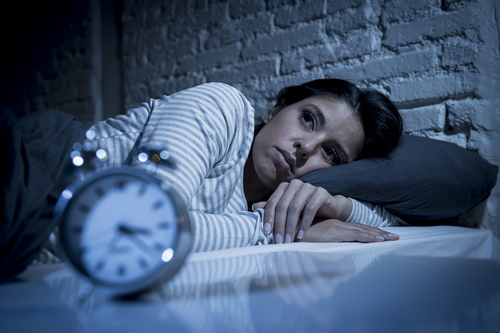Read the latest and greatest from our team
of incredible specialists.

Beach House Recovery Center » Blog » How Sleep Affects Recovery
Addiction has devastating effects on all areas of one’s life—including sleep. People suffering from addiction are approximately 5- 10 times more likely to develop sleep disorders. Ironically, many people initially use drugs and alcohol to help them with sleep issues, but end up getting addicted to the very substances they used to help them alleviate their sleep problems. For example, alcohol, a depressant, is used by nearly 30 percent of Americans as a vehicle to help induce sleep, and although it helps in that regard, the sleep derived from alcohol consumption is very disruptive and can easily lead to nightmares, sleep apnea, and snoring. It wreaks havoc on core body temperature, one of the most important mechanisms involved in regulating sleep.
Stimulants like cocaine, hallucinogens, and amphetamines activate the brain by flooding it with dopamine, energizing the user and making it extremely difficult to sleep. Opiates like hydrocodone, oxycodone, and methadone induce euphoria—similar to stimulants—which causes the users’ REM sleep cycle to be cut in half. As a result, they suffer from light, less refreshing sleep. Sleep disorders triggered by addiction are known as “substance-induced sleep disorders,” and include:

Sleep problems are inextricably linked to the recovery process. For example, detox is an exceptionally difficult recovery stage as the body transitions through debilitating physical withdrawal symptoms like tremors, vomiting, delirium, and headaches, as well as psychological symptoms like depression, anxiety, and irritability. This battery of symptoms leads to further sleep deprivation and insomnia—one of the most common and persistent challenges in the entire withdrawal process.
As the brain begins to re-adjust to normal dopamine levels, stress, anxiety, and physical pain become much harder to cope with and insomnia is intensified. Unfortunately, insomnia frequently leads to relapse, and the risk is doubled for those who have developed drug-induced sleep disorders. Therefore, treating these disorders is an important part of any treatment plan. There are several recommendations that should be followed to ensure better sleep quality during recovery.
Whether you’re researching for yourself or a loved one, Beach House can help. We understand that this is a serious time in your life and that the treatment center you choose matters. We want you to feel comfortable and empowered to make the right decision for yourself, a friend, or a family member. This is why a counselor is waiting and available to answer your questions and help put your mind at ease regarding the next steps. Many of the staff at Beach House have walked in your shoes. If you feel you’re ready or want more information about how to help a loved one, we can help today. You can also learn why we are voted the #1 rehab for addiction treatment in Florida.
We accept most major insurance plans and can verify your benefits quickly and confidentially.
We’re committed to helping you access the care you need, our admissions counselors can guide you through your coverage options and available resources.





"*" indicates required fields